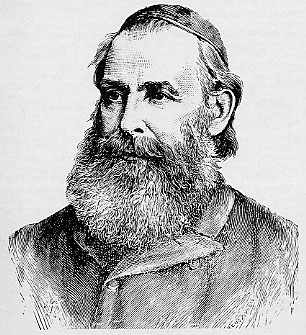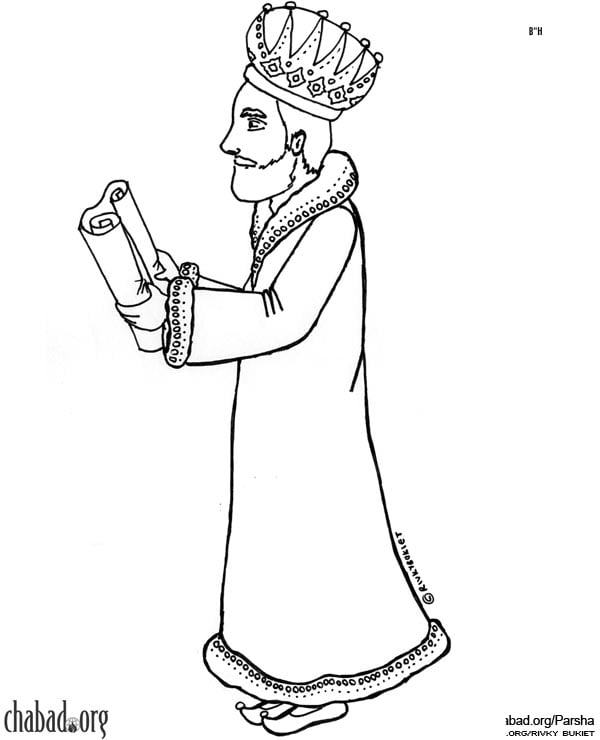This guest post was excerpted from a drash written by none other than my wife! Enjoy!
In last week's parsha, we read about how Ya'akov went out from his parent's house and settled in Haran to work for Lavan. As he set out on his journey, he encountered God at the place he called Beit-El (house of God). At that time, the Lord promised Ya'akov that He would give him the land in which he was lying and that his descendants would be "as numerous as the grains of dust on the earth." (Genesis 28:14) This encounter prepared Ya'akov for the challenges that lay in the journey ahead. While working for Lavan, Ya'akov's character is tested and shaped in order to prepare him to return to the land of promise. After twenty years of service, Ya'akov left the land of Haran to journey back to the land of his ancestors. God used this time outside of the land of promise to mold Ya'akov.
This is where this week's parsha begins. Ya'akov sends messengers ahead of him to meet Esav in order to offer gifts of peace. While he is preparing to meet his brother, Ya'akov cries out in distress to the God of his fathers and appeals to the Lord based on the promises that He gave Ya'akov at Beit-El.
Ya'akov and his family continue their journey and cross the Yabok River. While Ya'akov is alone, a Man wrestles with him until daybreak. This is a second encounter from the Lord. Determined once again to receive a blessing, Ya'akov says that he will not let the Man go until he blesses him. Then, the Man asks an interesting question: "What is your name?" (Genesis 32:28) "Heel grabber - The one who supplants," says Ya'akov. Whether this Man is God or an emissary of God, he makes an incredible pronouncement that changes Ya'akov and his descendants. "From now on, you will no longer be called Ya'akov, but Isra'el; because you have shown your strength to both God and men and have prevailed." (Genesis 32:29) "Striven with God", "Persevered with God", and "Wrestled with God" are different translations of this name. Ya'akov leaves this encounter changed in two ways: his hip is dislocated and his name is changed.
The challenging experiences in Haran and his encounters with God transform Ya'akov. The Ramban suggests that Ya'akov's new name means opposite of his old one: "Thus the name Ya’akov, an expression of guile or of deviousness, was changed to Isra'el [from the word sar (prince)] and they called him Yeshurun from the expression wholehearted ‘v’yashar’ (and upright)." Ya'akov moves from obtaining blessing through trickery to persevering with God to receive His blessing and promises.
If Isra'el means "He wrestles with God" then what does that mean for Israel's future? Ya'akov as a Patriarch foreshadows the life of Israel. He sets the pattern for the future experiences of his descendants. The children of Isra'el continue to have trials outside of the promised land. Starting with his son, Yosef experiences tribulations in Egypt when he is sold into slavery by his brothers. He serves as a slave and is thrown into prison, but the Lord is El Shaddai to Yosef and shows him favor. God uses these challenging experiences to transform Yosef as well.
Next, Moshe and the children of Israel are enslaved in the land of Egypt. They cry out to the Lord, and He brings them out of Egypt to journey into the land that He promised their forefathers. Due to their disobedience, they experience trials for forty years in the wilderness and are not allowed into the promised land. These challenges mold and shape them. Only then are they able to enter into the land that God promised.
Later, the northern and southern kingdoms are exiled under the Assyrian and Babylonian captivities. Likewise, in the second exile period, the Israelites experience hardships and persecution outside of the land of Israel. History shows that the children of Israel must wrestle with God and be changed by His encounters in order to experience the fullness of His promises.
When Ya'akov's name is changed to Isra'el, it foreshadows that the children of Isra'el will persevere with God and be changed by Him in order to receive His promises and blessings. Let's review God's promise to Ya'akov:
"I am Hashem, the God of Avraham your father and the God of Yitz'chak. The land on which you are lying I will give to you and to your descendants. Your descendants will be as numerous as the grains of dust on the earth. You will expand to the west and to the east, to the north and to the south. By you and your descendants all of the families of the earth will be blessed. Look, I am with you. I will guard you wherever you go, and I will bring you back into this land, because I won't leave you until I have done what I have promised you." (Genesis 28:13-15)
Throughout history, the children of Israel have exemplified the meaning of their name. They have striven with God and have faced challenges, but we know that God's role as Consummator shows that His promises to Avraham, Yitz'chak, and Isra'el continue to be fulfilled. Derek Leman writes that Isra'el has another meaning that speaks about God's role in the encounter with Ya'akov. He says that Isra'el can also mean "God perseveres." While the children of Israel wrestle with God and strive to be obedient to the Lord, God also perseveres with Israel and does not give up on them. Our haftorah portion reveals this about the Lord when He says, "But I am the Lord your God from the land of Egypt: I will yet again make you to dwell in tents, as in the days of he appointed season." (Hosea 12:10)
God still has a plan and a promise for His children Israel. He continues to bless Israel and through them bless all of the families of the earth.













































